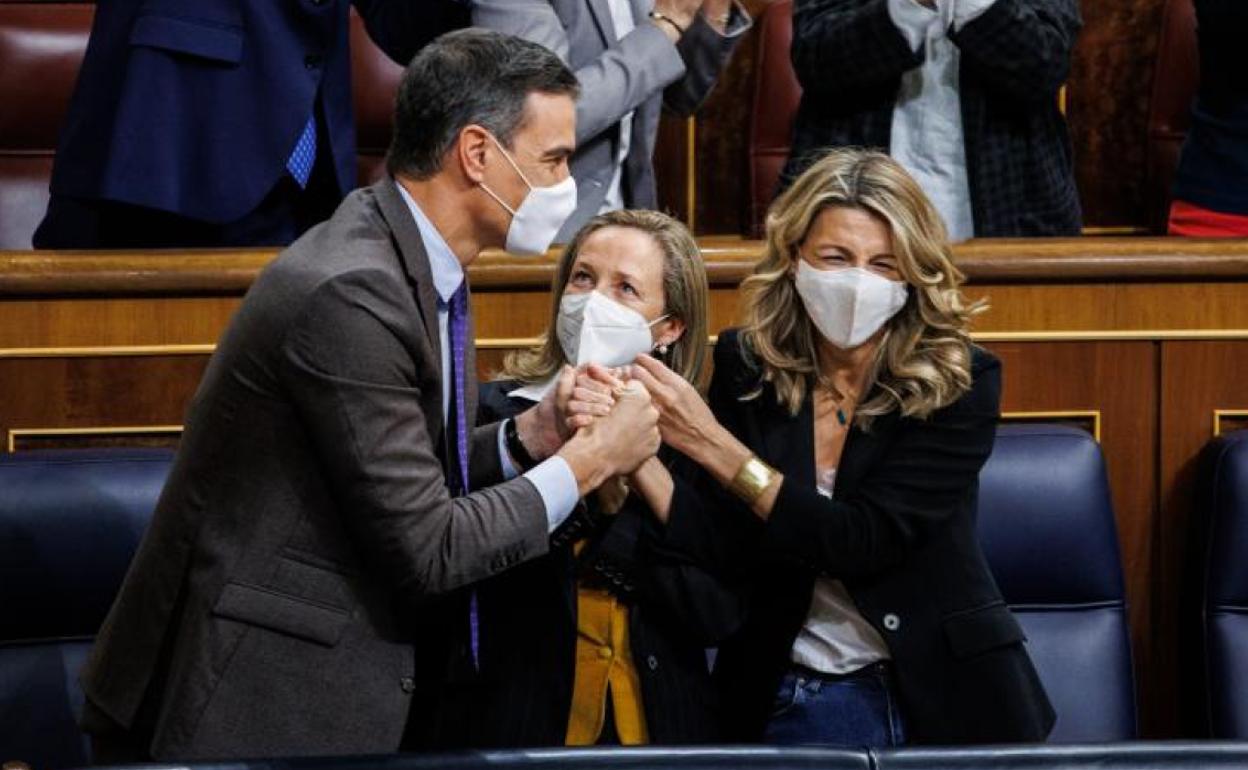A tactical vote
THE EURO ZONE ·
The carve up of the congressional vote, the composition of both its "Yes" and "No" blocs, reveals parliament's tectonic platesAlthough awaiting the final few votes for its flagship labour reform at the time of writing (Thursday morning), Spain's Socialist-led government has effectively guaranteed the legislation's approval. Once-again, the carve up of the congressional vote, the composition of both its "Yes" and "No" blocs, reveals parliament's tectonic plates, the position of which determines the coalition's success or failure. This time around, two deceptively small shifts could have far-reaching ramifications.
You'd have been justified in predicting that the pro-independence Republican Left of Catalonia (ERC) would back the reforms. Although often mercurial in its relations with the national government, the party did support the Socialists' 2022 budget; also, as a leftist force, you may have expected it to approve anything that cancels legislation introduced by former Conservative prime minister Mariano Rajoy.
But for the ERC, parliamentary votes have very little to do with the content of proposed legislation - they're all about the deal, specifically its side of the deal. When it backed the 2022 budget last November, the ERC extorted several conditions from Pedro Sánchez's government in exchange for its support. This time, seeing that its twelve congressional votes lacked market value, the ERC turned from the Socialists' friend to foe, defying its own parliament in the process. It thus risks rocking the Catalan government led by ERC member Pere Aragonès and, by default, Catalonia's fractured secessionist movement.
The ERC's positioning was also influenced by Ciudadanos, a centrist party that played a crucial role for the first time in months this week. In backing the coalition, Ciudadanos' national leader Inés Arrimadas said her primary motivation was to ensure "EH Bildu [a pro-independence Basque party] and the ERC cannot blackmail the government", her implication being that this is exactly what the Catalan separatists did over the 2022 budget.
Almost as an afterthought, Arrimadas affirmed Ciudadanos' commitment to "what's good for Spain" and to "thinking of the people". Clearly, the key votes for the government's long-awaited labour reforms have been tactical first and ideological second, both in the case of Ciudadanos' endorsement and the ERC's resulting (and therefore ineffective) opposition.
Might this be the beginning of a return to prominence for a party that has consistently failed to capitalise on opportunities for real power? A lot hinges on the elections in Castilla y León on February 13th, in which Ciudadanos is hoping its candidate, currently the region's vice president, will topple the Popular Party's Alfonso Mañueco.
The coalition might still have passed the labour reforms without Ciudadanos' backing (only a simple majority was required), but the latter's support guaranteed that smaller separatist groups had no bargaining power, as they did in the vote for the 2022 budget. Success in this unstable, shifting landscape depends more on parliamentary mathematics than on principles. Only once you've calculated who to harm and how to do it can you sit back and examine what you've just voted for.

